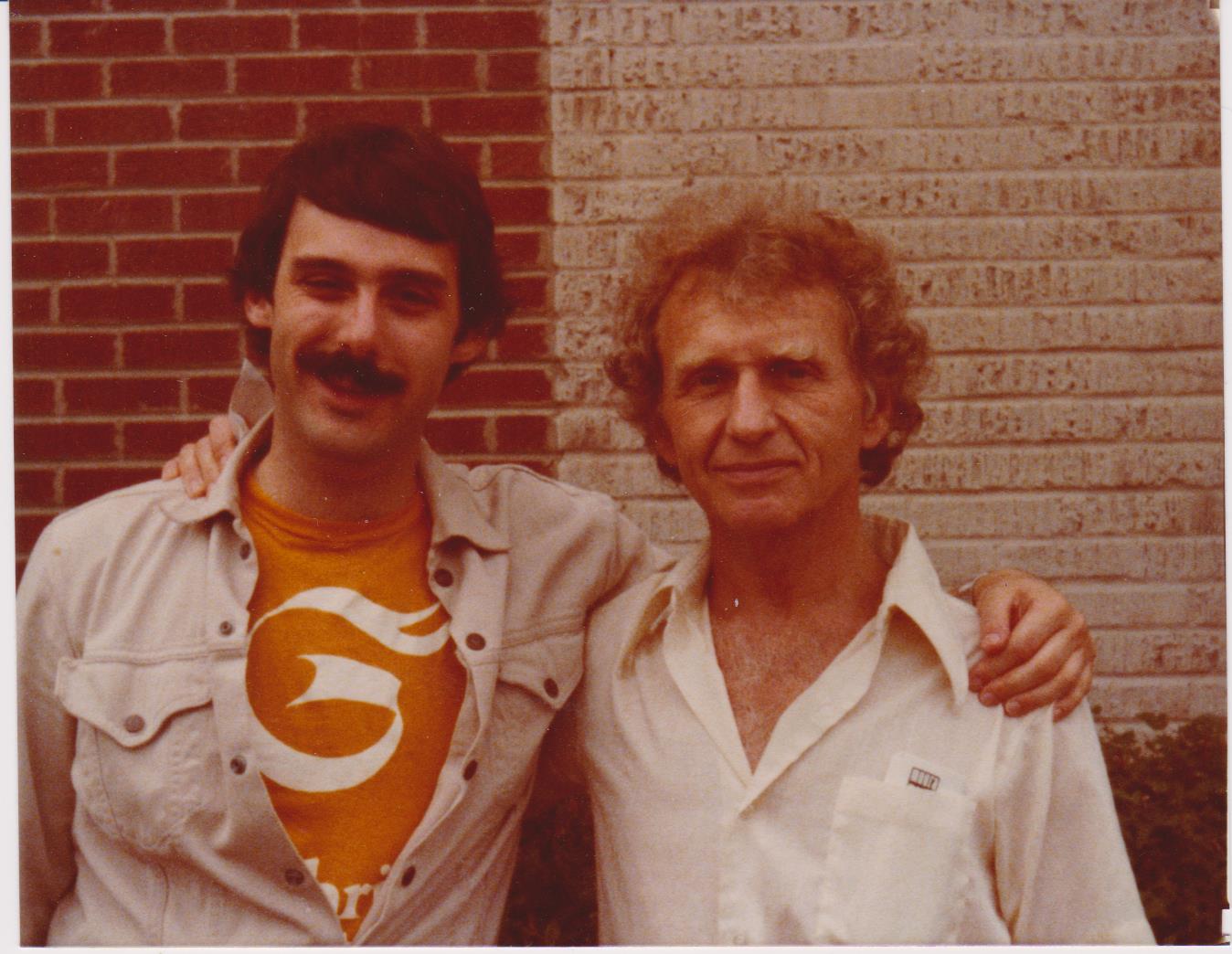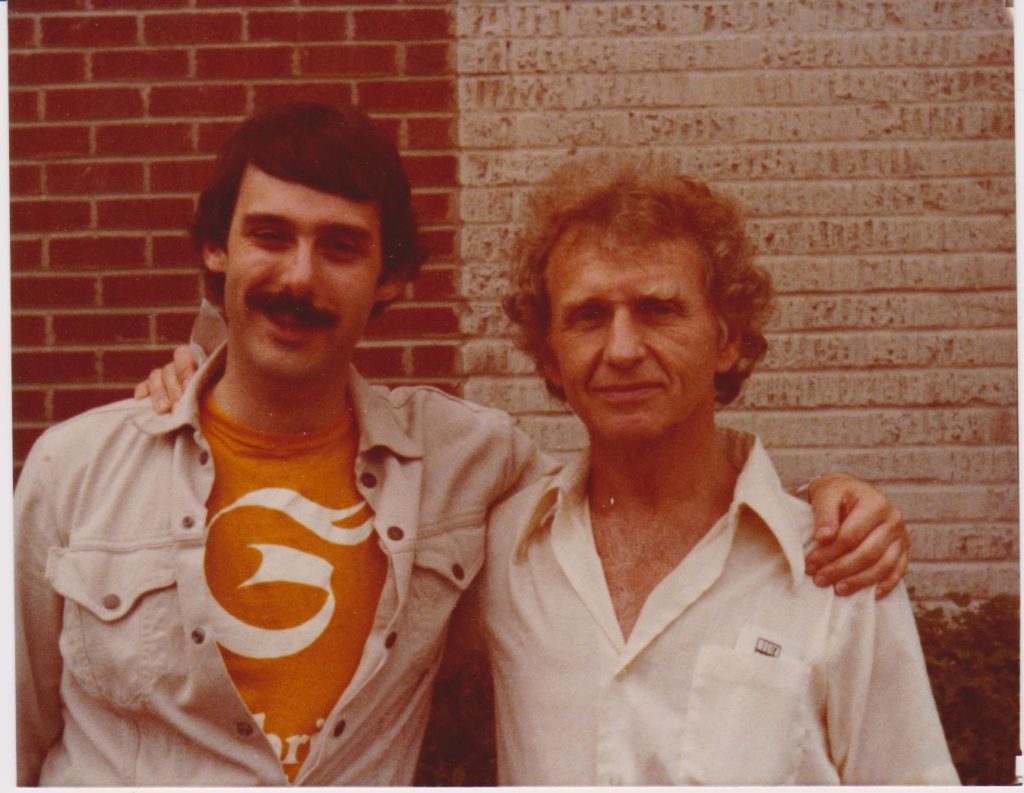
Michael Earl Feingold | May 5, 1945-Nov. 21, 2022

Eminent, admired, and influential theater critic Michael Feingold died Nov. 21 in New York after nearly a decade of declining health and a short, final illness. He was 77. Michael wrote for The Village Voice for over 40 years, and was chief theater critic for 30 of them. He won two George Jean Nathan awards, was a Pulitzer Prize finalist and was inducted into the Theater Hall of Fame in 2019. He chaired the Obie Awards for year, and his influence largely shaped them into one of the nation’s most iconoclastic awards program. When he retired as Obie chair, he was given a standing ovation at Town Hall by the assembled theater-makers of New York, and an Obie Award was named in his honor. Also a noted dramaturg and translator—especially of German and French works—he was nominated for two Tony Awards for his Broadway translation of Brecht.
I am a theater critic because of Michael Feingold. We met when I was 14 and a high school freshman, and he was a junior. When I was an undergrad in Boston, I would visit Michael at Columbia University in New York. One Thanksgiving Weekend, I stayed at his Columbia dormitory since most of the rooms were vacant. A Columbia friend of Michael’s invited us to a splendid Thanksgiving dinner in Scarsdale, and in the evening back in town we saw the APA-Phoenix production of You Can’t Take It With You, directed by Ellis Rabb with Helen Hayes as Penny Sycamore. At the final curtain, when everyone sits down to dinner, they brought out a huge, real turkey.
Through many visits with Michael in New Haven (when he was at Yale Drama) and New York, I met a who’s-who of leading theater figures, among them Stephen Sondheim, Sigourney Weaver, Lanford Wilson, Ellen Stewart, John Guare, Alvin Epstein, Eric Bentley, Martha Schlamme, Christopher Durang, Michael Yeargan, Marie Irene Fornes, Athol Fugard and others. Several became enduring friends and all increased my knowledge of theater and theater artists.
I often have said that Feingold forgot more about theater than I ever knew, except that he had a photographic memory and never forgot! His broad, deep knowledge of theater was apparent in his writing. He sometimes expressed a desire to give up reviewing and be only a playwright and translator, but it was just talk. It’s not that he needed to be an opinion-maker, but he needed to use theater criticism as a springboard for ideas and commentary. He was at his peak at a time when the Voice gave him nearly unlimited space, and he took advantage of it. On several occasions, I was with him when he was writing at home. Most of us stay at the keyboard until a story is done, but Michael would write a few lines or a paragraph and then pace through his apartment and fidget until he had the next paragraph ready to go.
Michael was a quirky genius. Many of our ATCA colleagues can tell tales of his being friendly and cordial one day, and aloof the next. He never drove a car or had a driver’s license. He was fluent in written French and German but did not speak them and never traveled to any French-speaking or German-speaking countries. He was a hoarder who, over the years, completely filled his large Upper West Side apartment with books, papers, prints, magazines, records, musical scores and sheet music; so much so that he stopped allowing people to enter his home or stay there (as I was allowed to do early-on).
Michael had a wonderful sense of humor and loved to laugh, which he did easily (this may surprise some people). As friends of many years often do, we shared jokes and anecdotes that didn’t require telling, evoking laughs with just a few key words or even an oblique reference. A meal with Michael would be patchwork quilt of thoughtful conversation, theater analysis, jokes, wordplay (which he loved), theater gossip (he had all the New York dish) and personal sharing. Because we grew up together and knew each other’s families, I was someone who could call his bluff, and I also understood how lonely he was. Michael had many enduring friends, but he never enjoyed an enduring personal partnership. He was a romantic at heart, but he knew how impossible it would be for anyone to live with him. He also grew estranged from his family after his parents passed away, and it was the one forbidden topic of conversation although I knew some of the reasons.
To be friends with Michael was to accept that he was self-absorbed (not self-centered) and rarely initiated communications. I emailed him, he didn’t email me. I called him, he didn’t call me. I read his stuff but he rarely read mine. He didn’t demand flattery or a lot of attention, but he assumed everyone was aware of his stature. Whenever the New York Times was looking for a new theater critic, Michael always expected it would be him (although he knew better). I would ask, “Michael, have you applied for the job? You know people at the Times, don’t you? Have you contacted them?” To which he invariably replied—so entirely Michael—”They know who I am.” I knew who he was, and I will be ever-grateful that I did.
ANECDOTE: Michael attended the ATCA 1978 Chicago annual conference, of which the highlight was the disastrous world premiere of David Mamet’s Lone Canoe. Michael and I attended the invitation-only opening night party at a fancy restaurant, and sat at a table with Mamet and Norman Snow, a lead actor in the production whom Michael knew from the Yale School of Drama. No one came up to talk to us. No one. Feingold, Mamet, Snow and I sat for an hour talking about anything but the play. Finally, the restaurant door opened and another Yale friend of Feingold and Snow’s walked in, Christopher Reeve, who was in the area shooting a movie. He didn’t know me, didn’t know Mamet and hadn’t seen the show . . . and we welcomed him to our table with open arms and palpable relief!
– Submitted by Jonathan Abarbanel, with light edit and additional coverage assembled by Martha Wade Steketee
Additional coverage:
November 28, 2022 American Theatre (Charles McNulty)
November 30, 2022 New York Times (Neil Genzlinger)
January 2023 (and growing) Literary Managers and Dramaturgs of the Americas (multiple authors)





Sorry, the comment form is closed at this time.